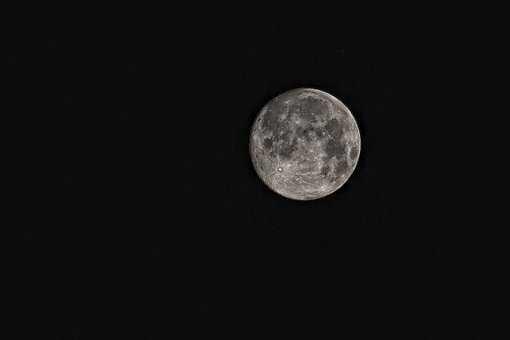Full Moon Insomnia: Does The Moon Affect Your Sleep?
Curated from: nosleeplessnights.com
Ideas, facts & insights covering these topics:
6 ideas
·3.63K reads
4
Explore the World's Best Ideas
Join today and uncover 100+ curated journeys from 50+ topics. Unlock access to our mobile app with extensive features.
Full Moon Insomnia And Weird Behaviors
Despite the lack of scientific evidence, many people believe in the moon's ability to change their behaviour and hold an uncanny power over them.
Hospitals, police stations and emergency phone lines report a big surge of cases on full moon nights, and they all cannot be wrong every time.
146
942 reads
Medical Beliefs And Moon Influences
A study published in The World Journal Of Surgery in 2011 explicitly pointed out that more than 40 per cent of medical staff is convinced that the lunar phases affect human behaviour.
This was later ‘debunked’ as subjective, citing a scientific analysis.
120
674 reads
The Transylvania Effect
The academic literature in the 90s termed the effect of the lunar cycle on humans and even entire populations as the Transylvania Effect.
This is the belief that the moon produces psychological and physiological disturbances in the body and mind and can also be found in ancient literature.
140
557 reads
Lunacy
- A full moon causes heavy dew in the brain, according to Pliny the Elder, a Roman author, naturist and philosopher. A moist brain then behaves in a ‘lunatic’ manner. The word lunatic, of course, refers to our moon, which is called Luna.
- Monseoc, another English word for lunatic, literally translates into ‘moon sick.’
142
523 reads
Ancient Calendars And Lunar Cycles
Ancient calendars were based on the lunar cycles, with every new moon indicating a new phase.
The ancient agricultural societies had good use of the moon calendar, planning and arranging their crop harvest accordingly.
116
439 reads
The Moon And Our Sleep
A 2013 research on a different topic retroactively reanalysed the sleep patterns of participants and combined them with the moon cycle to see if the moon is affecting the sleep pattern. They concluded that the lunar phase does influence human sleep, and works like gravity.
Many studies have continuously debunked the findings of sleep patterns being affected by the moon, but the fact is that the moon exerts a tidal force on water, and can very well have an effect on humans, even though it is not measurable scientifically.
132
495 reads
IDEAS CURATED BY
"The greatest of follies is to sacrifice health for any other kind of happiness." - Schopenhauer
Aurora E.'s ideas are part of this journey:
Learn more about technologyandthefuture with this collection
Practicing empathy in relationships and communication
Understanding the importance of balance in personal and professional life
Defining your path in life
Related collections
Similar ideas
4 ideas
5 ideas
4 ideas
Read & Learn
20x Faster
without
deepstash
with
deepstash
with
deepstash
Personalized microlearning
—
100+ Learning Journeys
—
Access to 200,000+ ideas
—
Access to the mobile app
—
Unlimited idea saving
—
—
Unlimited history
—
—
Unlimited listening to ideas
—
—
Downloading & offline access
—
—
Supercharge your mind with one idea per day
Enter your email and spend 1 minute every day to learn something new.
I agree to receive email updates

